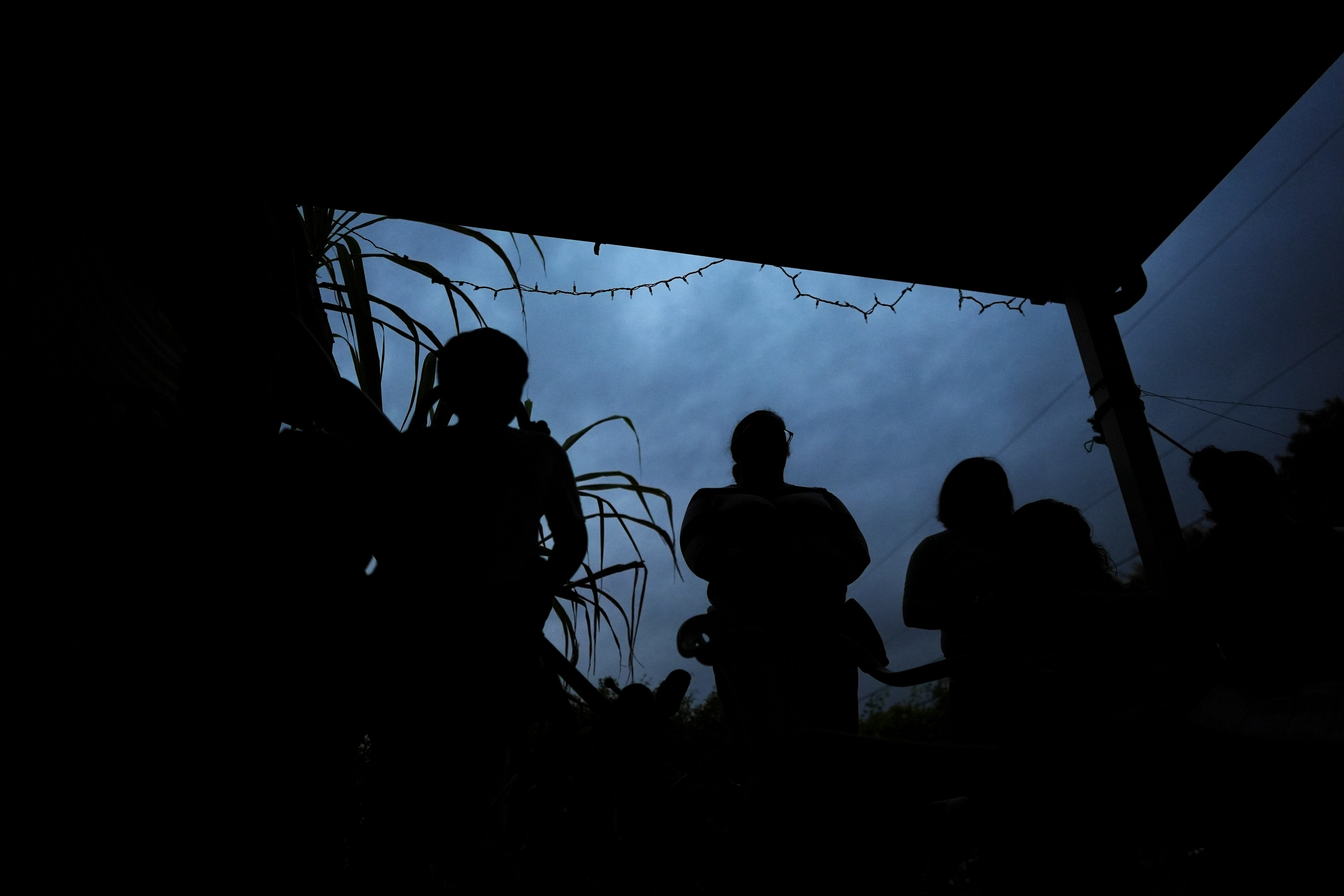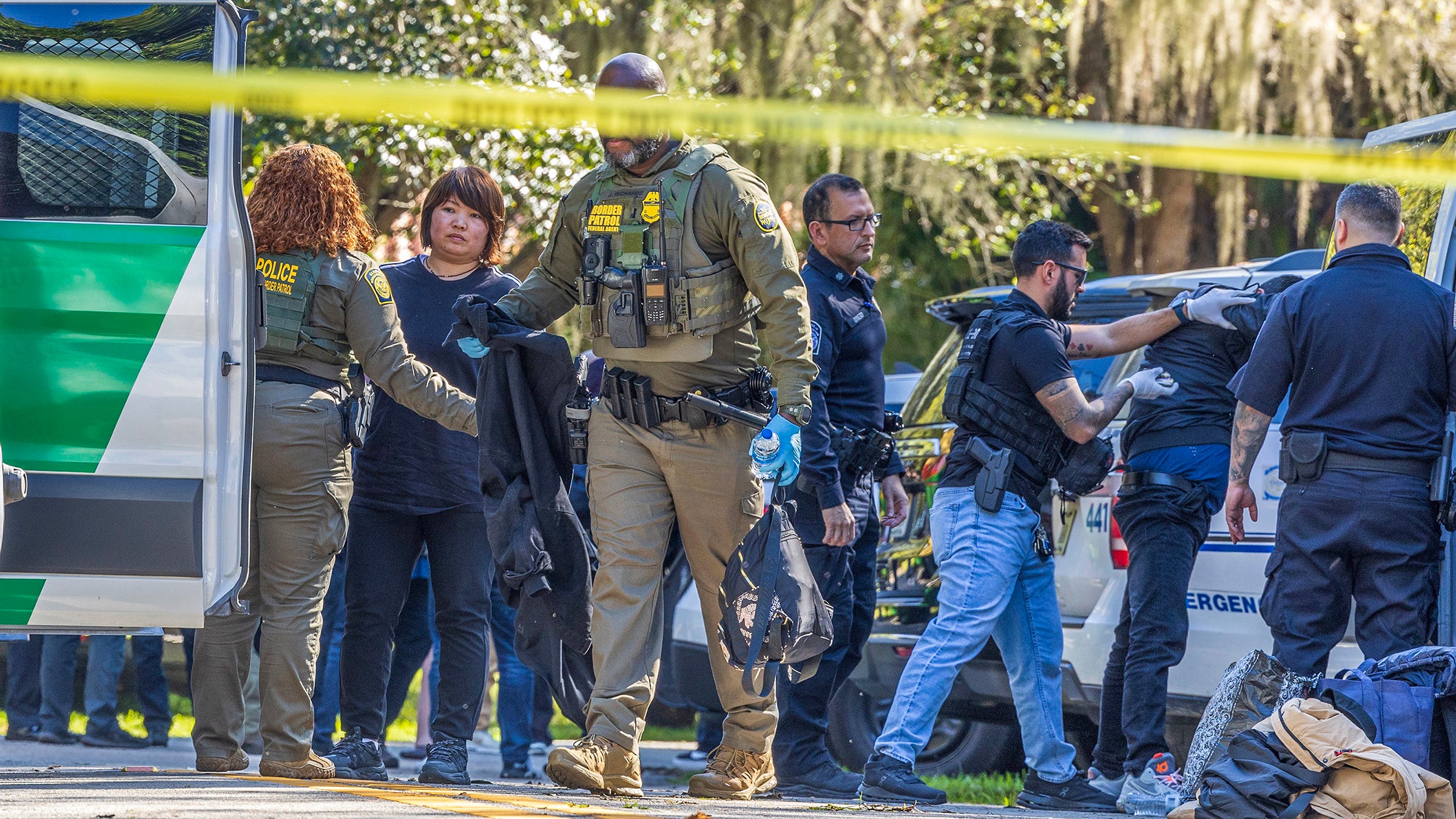Florida Governor Ron DeSantis has appointed the architect of the controversial migrant flights from Texas to Martha’s Vineyard to lead the state’s new immigration enforcement board, just days after signing what he claims is the nation’s strictest immigration legislation.
This appointment signals Florida’s swift implementation of the new law, which stiffens penalties for crimes committed by undocumented immigrants and allocates almost $300 million to bolster state and local involvement in federal immigration enforcement.
The move comes as Republican-led states race to enact laws supporting President Trump’s mass deportation agenda.
Here’s what to know about how Florida is implementing the new laws.

The two bills passed by Florida lawmakers and signed into law by DeSantis last week are aimed at maximizing state and local participation in federal immigration enforcement.
The legislation increases legal penalties for immigrants in the country without authorization who commit crimes, including mandating the death penalty for those who are convicted of a capital offense such as first-degree murder. The capital punishment provision alienated some Republicans and sparked criticism from Democrats and civil rights advocates who argued it appears to violate U.S. Supreme Court precedent.
The measures also create a new state crime of entering Florida after coming to the country without legal permission. And under the new legislation, Florida students who are in the country illegally will no longer be able to qualify for in-state tuition at public colleges and universities.
Who’s leading immigration enforcement in Florida?
On Monday, DeSantis and Florida’s Cabinet members held an emergency meeting to begin their work as the state board of immigration enforcement, a new body created by the legislation. The Republican leaders selected Larry Keefe to be the board’s executive director.
A former federal prosecutor, Keefe was a driving force behind the controversial taxpayer-funded effort in 2022 to fly about 50 migrants from San Antonio, Texas to Martha’s Vineyard — a move that outraged immigrant advocates, prompted a federal probe and is the subject of an ongoing class-action lawsuit.
“This is a perfect job,” Keefe told the governor and Cabinet after they tapped him to head the board. “I will make you proud.”
Can Florida deport immigrants?
Florida lawmakers created the state’s migrant transport program back in 2022, setting aside $12 million to fund the effort to fly immigrants out of state.
Last month, DeSantis called lawmakers into a special session on immigration and pushed them to dramatically expand the program and allocate an additional $350 million — as well as authorize state officials to deport immigrants out of the country.
DeSantis’ proposed legislation detailed how the state department of corrections would be responsible for coordinating “transportation to the defendant’s country of destination” and ensuring “the defendant leaves the United States.”
Ultimately legislative leaders tossed out DeSantis’ deportation proposal, instead retooling the migrant transport program to specify that removals can only be done at the direction of the federal government, “consistent with federal law.”

The new package of legislation comes with an overall price tag of $298 million, well short of the $350 million the governor sought just for removing migrants from the state.
Speaking at the meeting Monday, DeSantis said he wants the state to play a muscular role in getting unauthorized immigrants out of the country.
“Last time it was Martha’s Vineyard. This time maybe Guantanamo Bay, Cuba,” DeSantis said. “I don’t know how it’s going to shake out. I just know that we’re going to be there and we’re going to be on the vanguard.”
Who are state officials targeting?
State leaders have sent mixed messages on who law enforcement officials will prioritize in their crackdown on immigrants in the country illegally.
Speaking to reporters last week, Republican Senate President Ben Albritton said the focus is on criminals and “bad people,” pushing back on concerns that otherwise law-abiding grandmothers or students could be targeted.
DeSantis has called for casting a broader net. Earlier this month, DeSantis announced a new agreement between U.S. Immigration and Customs Enforcement and the Florida Highway Patrol that expands state officers’ ability to interrogate, arrest and detain immigrants and carry out “street-level enforcement.”



